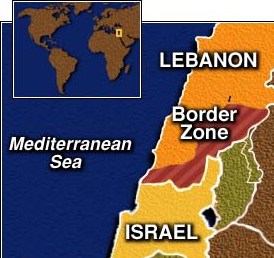Israeli, Lebanese and UN officials meet regarding Ghajjar
 Beirut - Lebanese and Israeli army representatives met Wednesday in the presence of UN under secretary-general for peacekeeping operations Alain Le Roy to discuss the issue of the Israeli withdrawal from Ghajjar in southern Lebanon.
Beirut - Lebanese and Israeli army representatives met Wednesday in the presence of UN under secretary-general for peacekeeping operations Alain Le Roy to discuss the issue of the Israeli withdrawal from Ghajjar in southern Lebanon.
According to a Lebanese security source, the conferees focused on Israeli press reports which indicated that the Jewish state is planning to withdraw from the Lebanese village of Ghajjar "very soon."
The source failed to give details of the meeting but said "the issue of Ghajjar was on top on the agenda."
According to Lebanese press reports the Israeli withdrawal from Ghajjar will take place in the nest few days.
The reports indicated that the pullout could take place at the end of a visit by Israeli Prime Minister Benjamin Netanyahu to Washington scheduled May 17.
According to a Lebanese government source, the Italian contingent working with the United Nations interim force in southern Lebanon (UNIFIL) might take control of Ghajjar once Israel withdraws from the village.
Since its 33-day attack on Lebanon in 2006, Israel has maintained a military presence in the northern part of Ghajjar, which lies on Lebanese soil, and built a security fence to prevent members of the militant Lebanese Shiite movement Hezbollah from infiltrating the village.
UNIFIL, which is overseeing a fragile ceasefire between Lebanon and Israel, last year submitted a proposal to facilitate Israel's withdrawal from part of Ghajjar.
The issue of Ghajjar came into the limelight after Israeli press reports over the weekend said Israeli Prime Minister Benjamin Netanyahu would announce a troop withdrawal from the village this week.
Half of Ghajjar is on the Lebanese side of the "blue line" which the United Nations drew after Israel evacuated southern Lebanon in June of 2000. Israel annexed Ghajjar in
1981 along with the occupied Golan Heights in a move that has not won international recognition.
According to UN reports, the northern part of the village lies on Lebanese soil while the rest is part of occupied Syrian territory.(dpa)